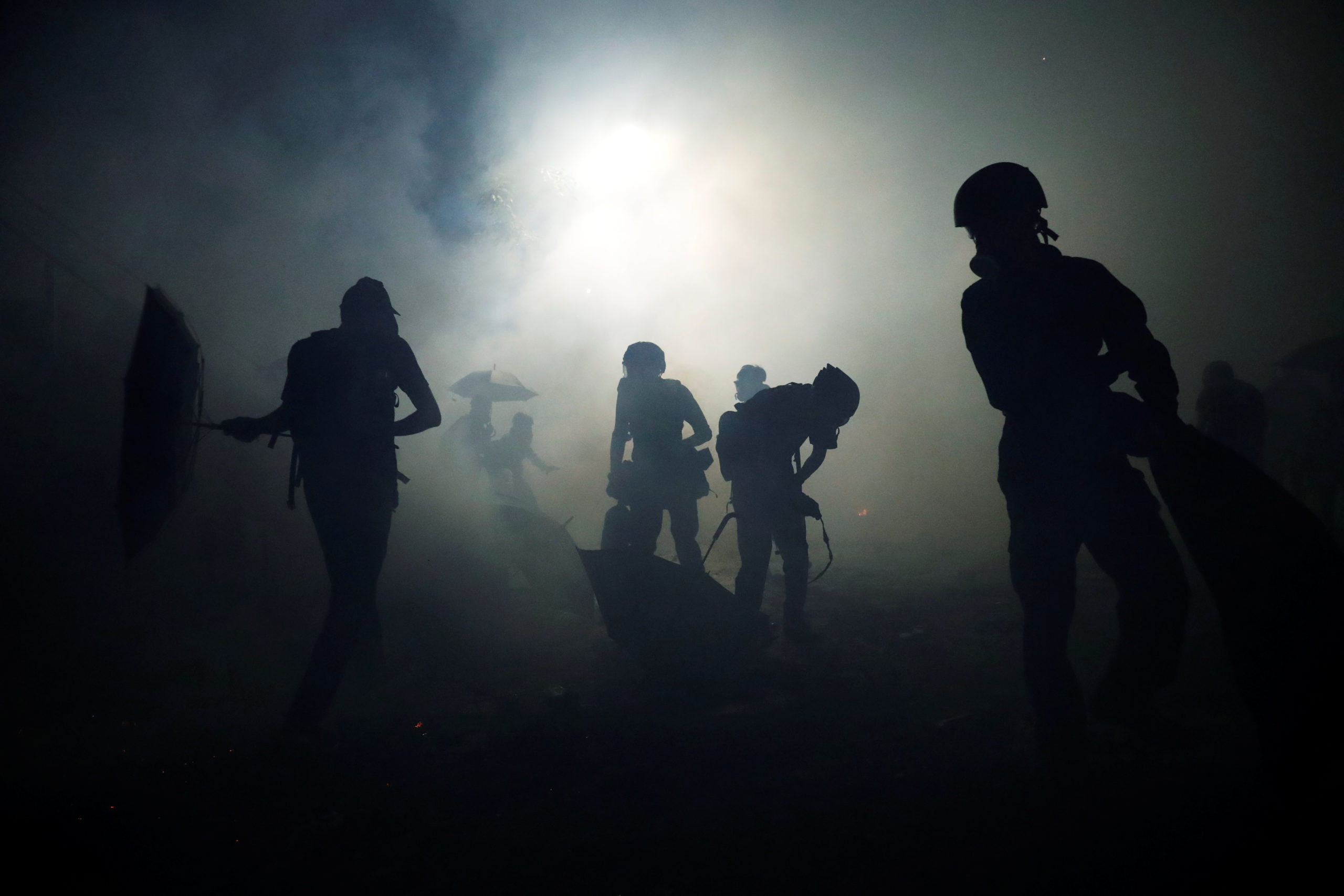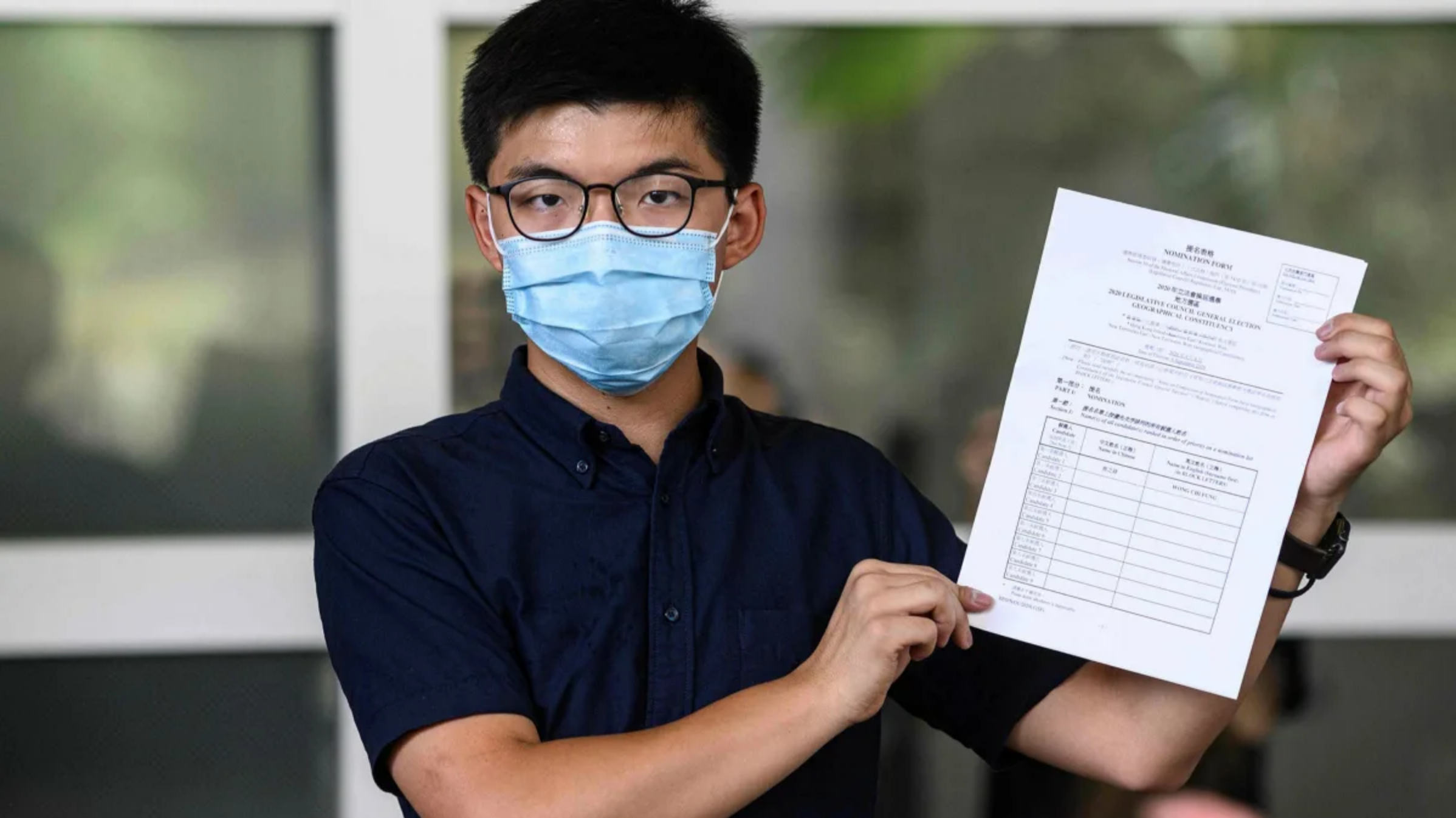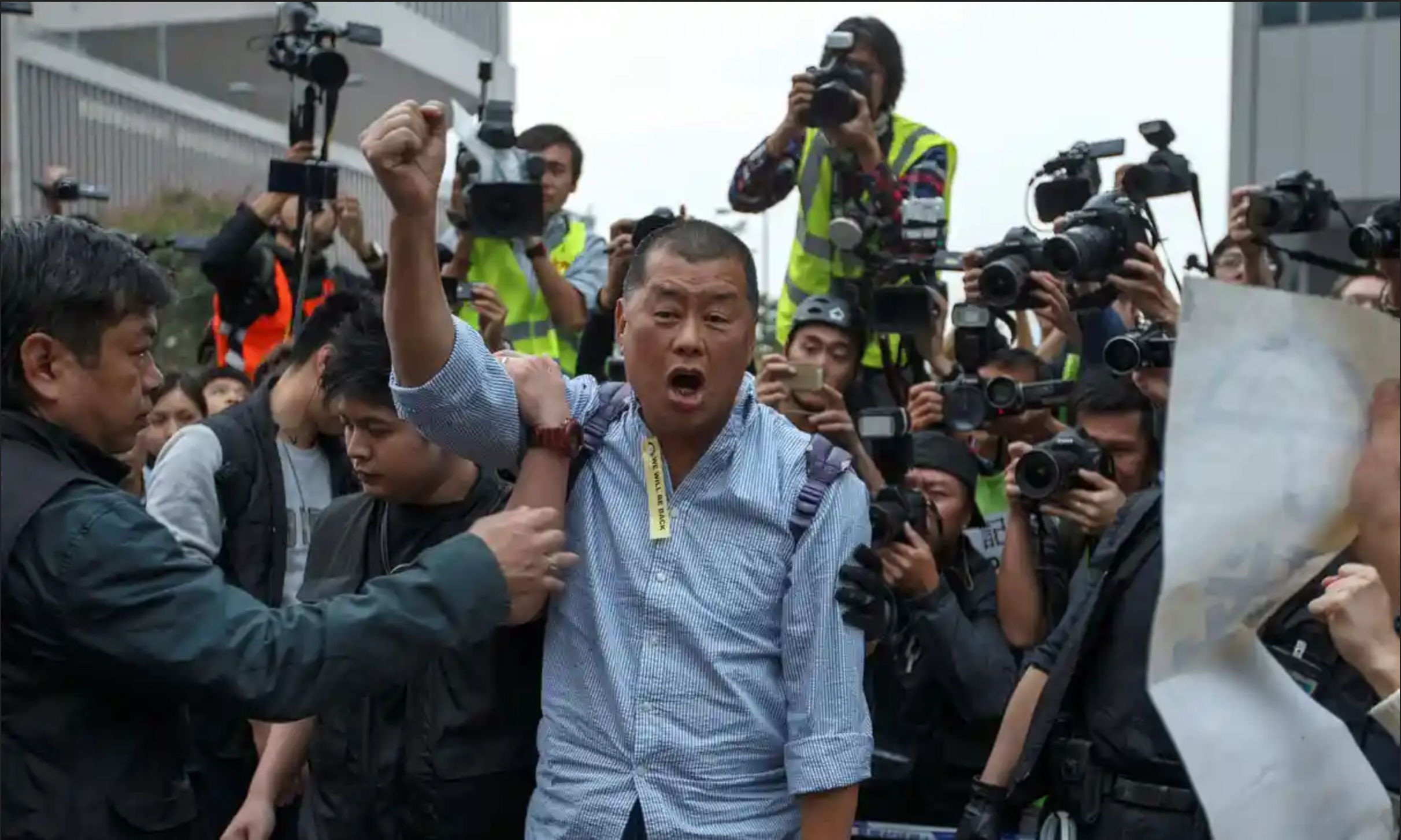Lee Shi Tian is a member of the Magic Pro League and the Magic Hall of Fame from Hong Kong.
Hello everyone.
It has been over an year since protests erupted against the special extradition law in Hong Kong. While the law has since been retracted, a lot has happened for the Hong Kong freedom movement. My last article about the situation in Hong Kong was in October 2019 and today I will give you a little update on what has been happening.
Actions Outside the Political System
Many Hong Kongers have been protesting for over a year, trying to effect change from outside of the political system.
Anti-Mask Law
On October 4, the Hong Kong executive used emergency legislation (bypassing the Legislative Council) to introduce an anti-mask law in response to ongoing protests. We have seen a revolution start in Ukraine when an anti-mask law passed—you can refer to Winter on Fire, a documentary on Netflix—and the introduction of an anti-mask law escalated protests in Hong Kong as well.
Conflict at The Chinese University of Hong Kong and Siege of The Hong Kong Polytechnic University

Anti-government protesters take cover during a standoff with riot police at the Chinese University of Hong Kong, Hong Kong, China November 12, 2019. REUTERS/Tyrone Siu
In November, protesters tried to disrupt multiple main traffic intersections as the protests escalated.
On November 13, Hong Kong Police Force (HKPF) tried to storm the campus of the Chinese University of Hong Kong (CUHK). About 1,567 canisters of tear gas, 1,312 shots of rubber bullets, 380 shots of bean bag rounds, and 126 shots of sponge grenades were fired to disperse the protesters. The conflict lasted for three days and the police arrested 142 people.
After the conflict at CUHK, the focus shifted to Hong Kong Polytechnic University (PolyU) on November 17. The HKPF besieged the university campus over a week, forcing the protesters to surrender after firing about 1,458 canisters of tear gas and 1,391 shots of rubber bullets at PolyU. During the period, there were protesters heading to PolyU trying to “rescue” trapped protesters—some of the protesters were able to escape from the campus yet there were still over a thousand people being arrested at the end of the incidents.
COVID-19
The protest on the streets died down a little bit after the siege of the universities. On the other hand, the outbreak of COVID-19 (commonly called the “Wuhan Virus” in Hong Kong) throughout Asia during late January 2020 also led to a marked decrease in mass protesting.
With tragic memories from SARS, Hong Kong has been doing a great job in fighting the pandemic. There were multiple periods of over 10 days with zero local infections during May and June. However, the Hong Kong executive again showed their incompetence by setting insufficient restrictions. The exemption of seamen from mandatory two-week quarantine led to the third wave of virus outbreak in late July.
Actions Within the Political System System
While many were fighting from outside the system, there were a group of people who tried fight for freedom from within the political system.
Election of District Council
On November 24, Hong Kongers showed their will in the District Council Election. With over 71% voter turnout, the pro-democracy camp took down 86% of the seats. However, many government departments refuse to cooperate with the newly elected district councilors.

Joshua Wong holds his candidate nomination form on July 20. The government said Mr Wong and 11 other pro-democracy candidates were unsuited to serve in the Legislative Council. Getty Images
Disqualified Candidates and the Delay of Legislative Council Elections
After the failure in the District Council elections for the pro-government camp, the government went further to undercut Hong Kongers. What is the best way to avoid a losing battle? Disqualifying the candidates and delaying the election. On July 30, 12 pro-democracy candidates were disqualified on the basis that they did not support the Basic Law (the constitution of Hong Kong) and National Security Law (see below).
On July 31, the government continued further by invoking emergency powers to postpone Legislative Council polls for a year. On August 8, the foreign ministers of the Five Eyes intelligence alliance (Australia, New Zealand, Canada, the United Kingdom and the United States) issued a joint statement expressing concern about “the Hong Kong government’s unjust disqualification of candidates and disproportionate postponement of Legislative Council elections.”
International Actions
With the free movement being blocked by tyranny both within and without of the political system, the movement relies on international attention more than ever right now.
National Security Law
To make matters worse, after the withdrawal of the extradition law, the Chinese Communist Party bypassed the Hong Kong government to introduce the National Security Law (NSL).
When the Hong Kong Government tried to introduce the extradition law in 2019, they claimed that they were trying to fix a loophole for criminal cases. But now, with the introduction of the NSL, multiple countries have decided to retract their own extradition treaties with Hong Kong because they believe that the NSL violates the Sino-British Joint Declaration and threatens to end the promise of “One Country, Two Systems.” These countries included the USA, Canada, France, Germany, Australia, and New Zealand—and the list keeps growing.
It is obvious that the contradiction between the Hong Kong government’s words and actions about fixing the so-called “loophole” was just a sugar-coated poison.
On August 1, HKPF issued arrest warrants for six overseas-based democracy activists alleging they breached the NSL. The six include United States citizen and resident Samuel Chu and Nathan Law, a former Hong Kong lawmaker who fled to London. You might wonder how could an US citizen living based in the USA be on the list. Well, the Article 38 of NSL states that the law is applicable to every individual, including those outside of and not from Hong Kong.
So yes, everyone is a Hong Konger now.

Apple Daily’s Jimmy Lai, a financial patron of Hong Kong’s pro-democracy movement, was arrested on August 11. Photograph: Athit Perawongmetha/Reuters
On August 11, Jimmy Lai, owner of the pro-democracy newspaper Apple Daily and his family were arrested for allegedly colluding with foreign forces. The HKPF also raided the offices of newspaper Apple Daily. The European Union spokesperson issued a statement expressing fears that the NSL is being used to stifle freedom of expression and of the media in Hong Kong.
On the same day, pro-democracy activist Agnes Chow was arrested under the NSL. Japanese Chief Cabinet Secretary Yoshihide Suga reiterated that the Japanese government was extremely concerned about the situation in the city and the hashtag #FreeAgnes trended on Japanese Twitter.
The Hong Kong Human Rights and Democracy Act and Sanctions
In November 2019, the Senate and the House passed the Hong Kong Human Rights and Democracy Act which was signed by the President of the United States a week later. On August 8, the first sanction list was released, in which the Department of the Treasury imposed sanctions on 11 individuals for undermining Hong Kong’s autonomy and restricting the freedom of expression or assembly of the citizens of Hong Kong. Most of them are the top government officials who are responsible for the implementation of the NSL and the abuse of police brutality.
On August 10, China said it will impose sanctions on 11 US citizens including Senators Ted Cruz, Marco Rubio, Tom Cotton, Josh Hawley, and Pat Toomey, as well as Kenneth Roth, the executive director of the NGO Human Rights Watch. The details of these sanctions were, however, not specified.
Conflict at the international level is escalating and Hong Kong is one of the focal points. After all that has happened in Hong Kong, it is clear that the fight between democracy and totalitarianism is not only taking place Hong Kong but in the entire world. I’d call back to the title of my last article: “Today, Hong Kong. Tomorrow, the World.” We know that if totalitarianism is not stopped, it will try to ruin not only Xinjiang or Hong Kong, but continue to the rest of the world. Although we have seen many corporate leaders and other high profile individuals surrender to Chinese interests for personal gain, I am glad there are people willing to stand with Hong Kong and try to right what’s wrong.
Personal update
From my personal perspective, lots of things have changed in the last couple months. As a professional Magic player, the cancellation of the original 2020 schedule of tournaments and the reduction in tournament prizes has definitely affected me a lot. I have been trying to adapt to the online tournament and streaming life but it is not very easy. I need to spend quite a lot of effort to adjust from the Hong Kong time zone to the American time zone for major tournaments. I am glad I was able to get a fair result in the Players Tour Finals even though it started at 12am for me…and finished at 9am.
We Hong Kongers are pinned in by evil laws and the current pandemic. I wish we could do more but we are running out of options. Under the NSL, I am not even sure if writing this article will put me into a bad position. But one thing I have learned during my life as a Magic player is that we can’t let fear get the best of us. When the time comes, we need to do what we need to do and keep fighting for what’s right.
A couple of friends have suggested that I should just leave Hong Kong since I do not need to live here to be a professional Magic player. There are countries that have started to discuss the “Lifeboat Campaign” for Hong Kongers. It has definitely opened up some options for me. However, I am not willing to give up so easily. I hope I can fight until the last moment.
I love Hong Kong.

